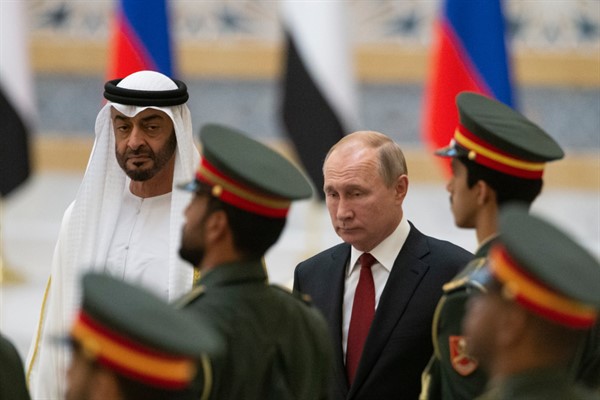Reports this week that the United Arab Emirates is potentially financing Russian mercenaries in Libya affiliated with the notorious Wagner Group, according to a Pentagon watchdog, appear to be sending mini shockwaves through Washington. But the UAE has long had a fixation on mercenaries, and the fact that Russia is a regular supplier of soldiers of fortune should surprise no one. Much more worrying is the lack of policy coherence in Washington on what to do about it.
A seemingly insatiable appetite for proxy wars and hired guns has helped fuel the rise of these shadow armies. President-elect Joe Biden’s administration can quickly get at least one thing right by standing up a joint task force on the proliferation of privatized militaries and their implications for American national security. If Congress is smart, it will take aggressive legislative steps to ensure that happens.
As first reported by Foreign Policy, the Defense Department’s Inspector General in a recent report cited an assessment by the Defense Intelligence Agency that the UAE “may provide some financing” for the Wagner Group’s operations in support of Libyan strongman Khalifa Haftar. The news comes as members of Congress and human rights groups have called for a halt to a pending $23 billion U.S. arms deal with the UAE. It hardly seems like a coincidence that the revelations, buried in a dense, 100-page Pentagon report, follow congressional scrutiny of the Trump administration’s aggressive push to ram through the sale of F-35 fighter jets and drones to Abu Dhabi. The Pentagon report also noted that U.S. Africa Command estimated that there were approximately 2,000 Russian-backed Syrian fighters in Libya, echoing similar reporting from Libya, including a recent U.N. report on mercenary activity.

